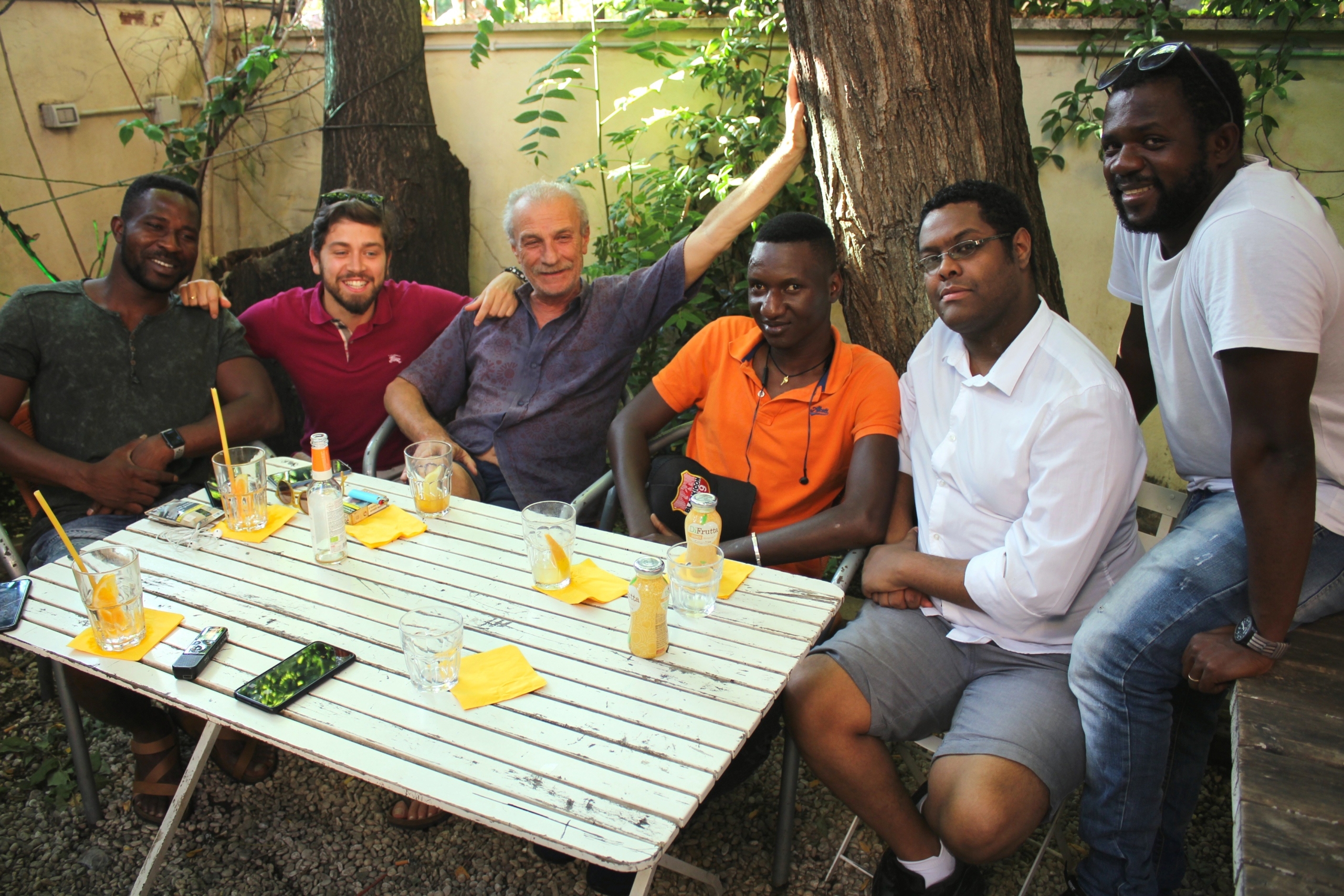Sign up for the daily CJR newsletter.
Early this month, Matteo Salvini—the leader of Italy’s far-right, anti-migrant League party—was removed from his position as interior minister, when the government made a turn to the center. Since he’d started the job, last summer, Salvini had presided over a rise in harassment and violence against migrants, announcing from the start that “the good time for illegal immigrants is coming to an end.” He reached for more power, and then lost what he had, though his supporters—chanting “Elections! Elections!” in the chamber of parliament—suggest there could be more of him ahead. For the most part, national outlets have scarcely included the voices of migrants in their coverage. An exception is the Black Post, an immigrant-run online magazine that launched in Rome in April.
In the Black Post, Salvini has been written about—in memoirs, poems, and op-eds—from the point of view of migrants. “My Free Ride,” published in July, takes a term he made popular and dismantles the premise: Daouda Sarè, the author, describes the months he spent working as a farmer in Southern Italy after he first arrived. “We were paid 25€ or 30€ per day,” he writes. “The conditions were so hard that one of us killed himself.”
Sofonias Kassahun, another contributor, came to Italy on a scholarship from Ethiopia; he speaks near-perfect Italian. Yet he’s found that people look at him sideways on public transport because he is Black; a landlord refused to rent him an apartment in Rome. “Sometimes it’s hard to set the anger aside,” Kassahun says. So he began writing about the legal rights of migrants for the Black Post.
The Black Post’s writers—there are ten—come from places as disparate as Mozambique, Mexico, and Mali. They’re assisted by a few native Italian speakers, including Luca De Simoni, a 26-year-old law student at the Sapienza University of Rome, and Sandro Medici, the former editor-in-chief of the Italian newspaper Il Manifesto.
Sometimes, the contributors chat about their ideas with an editor, but many start writing without going through a pitching process. Medici, De Simoni, and other Italian journalists who help run the site say they approve almost all of the writers’ ideas. After all, they explain, the project aims to provide a platform for migrant voices. “If we told them what to write we would clip the wings of the project,” De Simoni says.
Most of the contributors’ stories draw from personal experiences as a way to offer perspective on current affairs. This is a deliberate choice, since their voices are precisely what the Black Post thinks is missing from Italian media. In addition, writing about themselves serves a practical purpose: almost none of the contributors have any professional writing experience, and they find it easier to write when much of the material for an article is self-reporting. (A notable exception is Diawara, a 31-year-old Malian who has written an Italian-language poetry book on immigration, racism, and colonialism called Sogni di un uomo—“A man’s dreams.”)
Bangaly Fode Kante, who came to Italy in 2014 from Libya—where many migrants are detained, tortured, or sold as slaves—says he likes to write about “the suffering of the people.” By this he means, “When someone decides to leave their country, they will pick up a lot of suffering on the way—sometimes even in the host country.”
Editors take a light touch when editing drafts. Often, the editing focuses on the use of Italian—which all contributors speak as their second or third language; many haven’t mastered the Italian conjunctive tense—but leaves alone the angle and political tone. “We try not to distort the article, we want to leave their stamp on it,” De Simoni says.
Once a week, contributors and editors try to gather for an editorial discussion in a bar or meeting room in Rome, to debrief on stories and edits. This is an occasion to train contributors in the basics of journalism—i.e. “don’t mix facts and opinions”—and encourage them to interview experts and use official statistics in their articles.
The Black Post has found a moderate degree of success, with more than 20,000 followers on Facebook and a few radio and TV invitations to its contributors. But editors try to play down the numbers. “Ours is a very small contribution to change the media,” Medici says. De Simoni sees a lot of room to improve, but he’s proud of what they’re adding to Italy’s media landscape. “The ‘White Post’ is already everywhere,” he says.
Has America ever needed a media defender more than now? Help us by joining CJR today.







